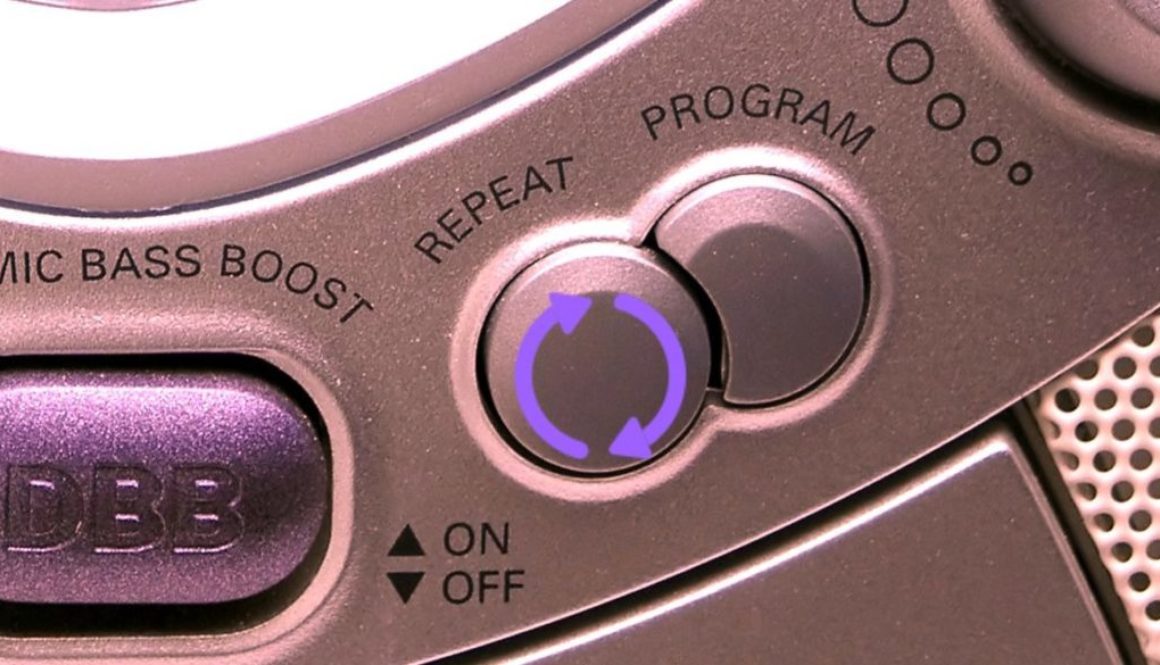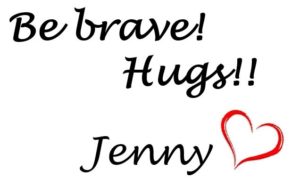The power of “I am” and putting things on repeat

She reaches across the table and accidentally tip over her glass, water flowing out over the table. She feels frustration and shame shoot through her body and I hear her exclaim “What an idiot I am, I’m so clumsy!”. I was sitting reading at a café, next to a mother and her two boys. The scene continued as a young man from the staff came over to help clean the table. The mother was clearly uncomfortable with the extra attention that the busboy brought and I could tell she’d rather managed it by herself.
The words you allow to follow “I am” will become part of you
Humans lead with belief, which means that what you believe will steer your actions. What you believe about yourself, about who you are and what kind of things you do will set the boundaries of what you will consider doing. If you say that you are someone who can’t draw, chances are slim that you’ll pick up a brush. In fact, your brain will even work against you should you be willing to give it one more try. Your brain want to support you in staying consistent with your identity and will “help” you focus on all the details proving how you can’t draw.
Words have tremendous power. They can be used to lift someone up, to give hope or to demonstrate love. Just writing the words “I love you”, “I’m sorry” or “I’m proud of you” fills me with strong feelings. They can also be used for pain and for shaming or isolating people. Sentences such as “You’re worthless”, “I hate you” or “Who do you think you are?” will hurt even the strongest.
The words you say to yourself are the strongest ones of all and particularly the words you let follow the phrase “I am”. These words will create ad describe your identity.
I wondered if the mother at the café had always believed she was a clumsy person and how often she experienced proof of that. If I’d asked her, at another time when she hadn’t just spilled something, would she say that she was always clumsy? That it was just part of who she was? I thought about how that belief got started in her. Was being clumsy something she’d been told as a child by someone else or had she made that up on her own?
Sometimes identity comes from outside as a taunt disguised as a joke
A friend of a friend of mine, single mother, two children, has recently introduced a new partner into their family life. It’s a man that, as far as I can tell, really has deep feelings for both the woman and her kids. I’ve seen both the children and the man spontaneously give each other warm hugs and I’ve watched the children turn to him with questions and for advice. It seems like the new family dynamic has brought more love and laughter.
I wouldn’t question his commitment to help impact these kids in a positive direction. If asked I think he would proclaim his caring for them as well as his belief in their personalities and abilities.
So I was surprised and caught off guard when I heard him jokingly say to the son “You’re such a loser dude, you’ll never amount to much in this world!”. It was said with humor and clearly as a way to tease him and by the lack of reaction from the son I take it wasn’t the first time something like that was said. The son didn’t seem to care much, just shrugged his shoulders and kept to whatever he was doing.
Repeating something makes it true
I think that children are born optimistic and with a willingness to try new things. They aren’t easily dissuaded by setbacks or “failure”. How could they ever learn to crawl or walk if they were? The inherent belief that I can do anything if I just keep trying is what makes babies such quick learners. Sometime along the way a child will eventually be confronted by other people’s judgment. It can be by parents, grandparents or teachers. As they grow into teenagers, friends and peers will possibly have huge power to impact their identity.
The words following you are, given by people you care about, will define your identity almost as much as your own words following I am.
Every time you repeat something you strengthen that belief a little more. It’s a physical thing. The same way that your body gets better at what it repeatedly does so does your thoughts become more and more easily activated when you repeat them. It’s alike a jukebox set on repeat. The same record playing over and over. In time all you have to do is get it started and the song will play all the way through again and again.
Famous coach Jim Rohn said “Every day stand guard at the door of your mind” and I believe it’s one of the most important things you can do.
Keep guard of the things you let in from the outside and be even more vigilant about the words you hear from the inside.
Becoming aware of your identity – both empowering and limiting
Knowing how you view yourself, your identity, is powerful. Knowing is power because knowing lets you change the things you want to change and use your strengths purposely.
To identify your beliefs about yourself set aside some time and bring out your pen and paper. Some people find this exercise hard. Some are too hard on themselves and can’t find anything good to write. But some people have dug their limiting beliefs so far down inside that it’s hard to allow them to come out. If you’re coming up short with “negative” identity traits you’re in this category. If you are, then sit back, breathe and know that whatever comes up you can handle. Your mind will give you truth on a level that you are ready for.
You might start by reading these following sentences. See if you can remember a time when you’ve said something similar:
“I am such a loser, why do I have to be so shy, I’ll never be outgoing enough to make friends..”
“I am so clumsy, I always screw things up, no one will ever want to play with me..”
“Even when I know I shouldn’t I eat to much, I am weak, I’m fat and ugly..”
Then write the following sentences and ask your subconscious to give you the true answers so you can uncover strong truths as well as lingering limiting beliefs.
- “I am…”
- “Unfortunately I am also someone who…”
- “My parents always said I was…”
- “Luckily I am someone who…”
- “I’m proud that I am…”
Finish each sentence with as many beliefs you can find. Whatever comes up is okey, just let it out on paper.
